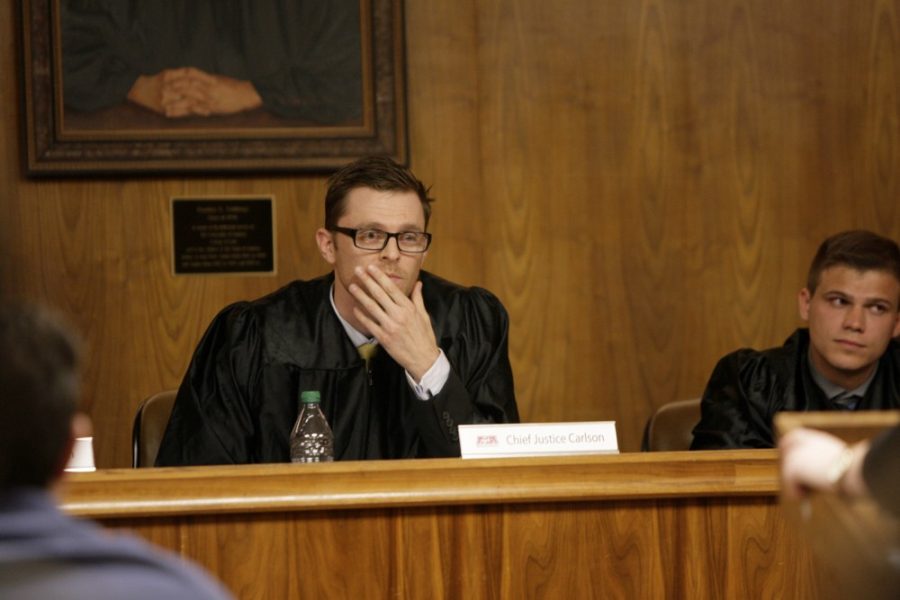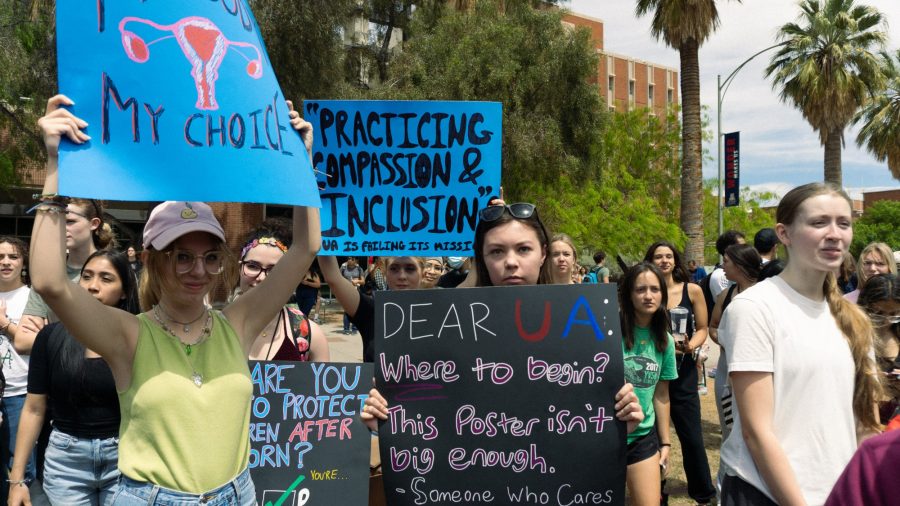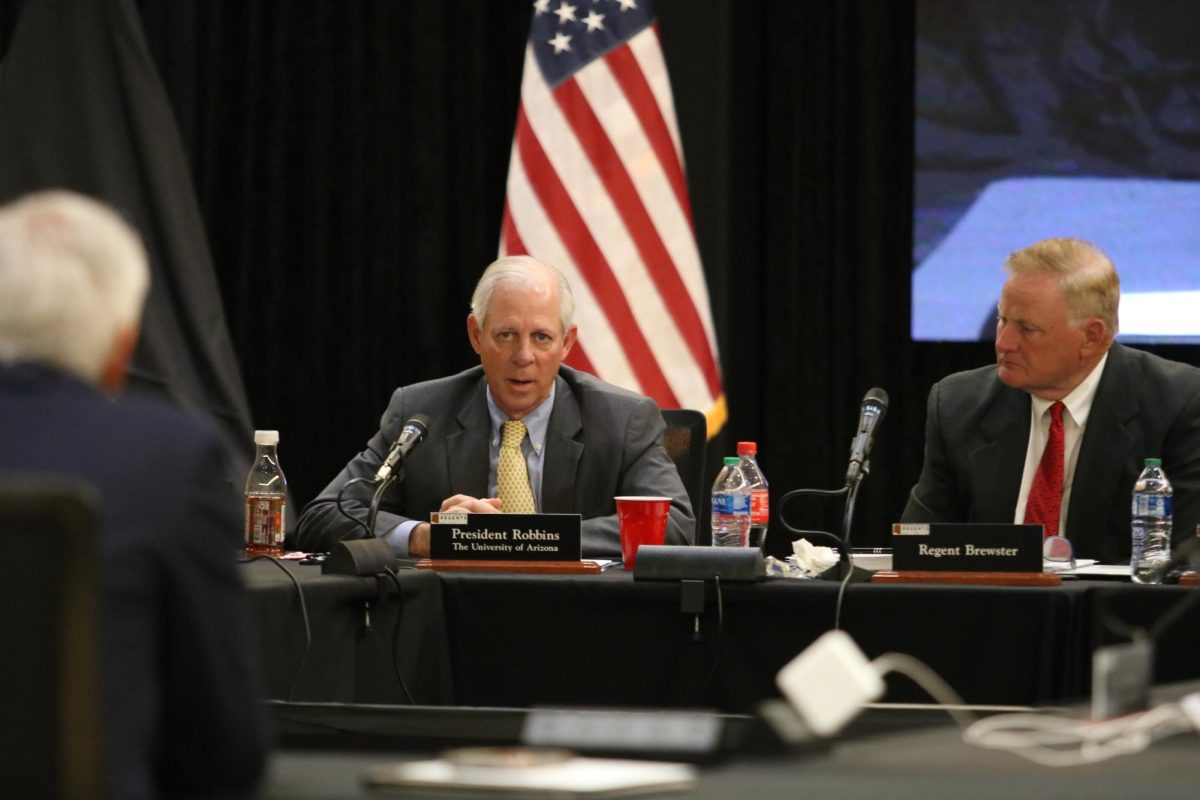Associated Students of the University of Arizona candidate Stefano Saltalamacchia stood in front of the ASUA Supreme Court on March 10 and appealed the reversal of a decision to disqualify his opponent, Sen. Trey Cox from the executive vice presidential election.
That evening, the court ruled to reverse the decision of the ASUA Elections Commission — the body responsible for revoking Cox’s disqualification — and reinstate the original decision of Election Commissioner Diego Alvarez to disqualify Cox. The court had five business days to deliver its decision, but ruled in only a matter of hours.
In addition to their decision to uphold the original decision of disqualifying Cox, the court also ruled there would be a special election to decide who will ultimately hold the seat of ASUA executive vice president.
Cox’s disqualification from the race stems from three separate complaints that ended up garnering him five strikes, or infractions of the ASUA Elections Code. Only three strikes are needed for disqualification.
The strikes levied against Cox included infractions like dorm-storming, supplying electronic devices to vote and an incident of alleged hate speech against his opponent Saltalamacchia.
While the ruling has been officially delivered, the court has yet to release its opinion on the case. The court’s opinion will give ASUA guidance on how to now move forward with their ruling and the upcoming special election, and according to Alvarez, may also give them guidance on whether or not Cox is eligible to run again in the special election.
It is currently unclear if he will be able to run, according to Alvarez.
Chapter 10 of the elections code — the portion referring to candidate disqualification — never explicitly states if a disqualified candidate is eligible to run again. It states that a special election will occur in the event of a disqualification.
Cox said he was blind-sided by the courts decision.
“Like many other people in ASUA, I’m just very surprised,” he said, adding that he is curious to see what reasoning the court used to re-instate the strikes against him. “[It] was a huge shock to me because it seemed pretty clear cut in the code that testimony could not be the sole [evidence].”
Cox added that due to court precident, particularly a case four years ago when candidate James Allen was disqualified and then allowed to run again in the special election, he said the odds are strongly in his favor for being able to run.
The decision on whether or not Cox can run may rest squarely on Alvarez’s shoulders, according to Alvarez. He said he is waiting on the opinion of the court to be released before he makes any interpretations of Cox’s eligibility.
Cox confirmed he will run again if given the opportunity.
Vagueness of language in the elections code has been a common source of controversy this elections cycle.
In the March 10 Supreme Court oral arguments, discussion on both the side of the challenger, the defense and the justices themselves primarily focused on the vagueness of the language in a handful of sections in the elections code.
These mostly pertained to supplying physical evidence with a complaint and the definition of evidence.
“I think that the Supreme Court justices, to the best of their ability, worked with a flawed document—the elections code—and I think that they have given the students justice,” Saltalamacchia said about the Court’s decision. “Now that [Cox] is officially disqualified from the former election, there is no arguing the fact that what he did was wrong and that justice was served.”
Saltalamacchia has yet to decide if he will run in the special election.
While the argument within the chambers of the court primarily focused on the hearsay type evidence that Saltalamacchia provided in order to disqualify Cox, Cox said he has evidence on his behalf of a similar nature that was never actually taken into account.
Cox said he has collected numerous testimonies from women in the Kappa Alpha Theta house that also witnessed the alleged illegal campaigning and harassing remarks. These testimonies, he claimed, explicitley state that he was doing nothing wrong while in the Theta house.
ASUA will open up the candidate packet and signature process for the special election sometime in the coming two weeks — allowing hopeful candidates to garner enough signature to become ballot-eligible, according to Alvarez.
Following that two-week period, there would be a one week period of campaigning followed by the final election.
Follow Sam Gross on Twitter.









